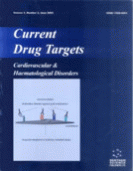Abstract
Peripheral arterial disease (PAD) is an index of systemic atherosclerotic disease and is associated with a high incidence of atherothrombotic complications in coronary, cerebral and peripheral arteries. While antiplatelet agents have been extensively evaluated and shown to be effective in reducing the risk of ischemic vascular complications in PAD, few randomised controlled trials have compared the effects of antiplatelet agents with oral anticoagulants in PAD. Oral anticoagulants have been shown to be superior to aspirin only for the prevention of infrainguinal bypass occlusion of venous grafts in case the bypass is at high risk for occlusion. The effectiveness of oral anticoagulants in reducing vascular morbidity and mortality is still uncertain. However, the reduction of ischemic events by oral anticoagulants is associated with an increased risk of bleeding. As a result, oral anticoagulants have a limited role in patients with symptomatic PAD.
Keywords: anticoagulants, warfarin, arterial occlusive disease, peripheral vascular disease, platelet aggregation inhibitors, aspirin, atherosclerosis, vascular surgical procedures, randomized controlled trials














